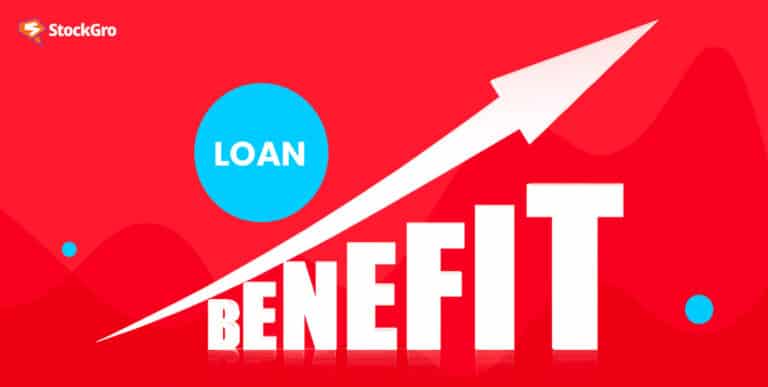
There are many different kinds of loans in the corporate finance industry, and it can be difficult to know where to start. The two most prevalent types of company financing are term loans and working capital loans.
So, exactly how are these loans established? In particular, how do you differentiate between the two? What matters more is how your comprehension of these distinctions will influence your decision-making.
These are questions that every business owner should know the answers to. Both making educated decisions and capitalising on these financial instruments for the company’s growth and longevity require a firm grasp of their ins and outs.
To help you choose the best loan for your company, we’ll explain these concepts, compare and contrast them, and more in this article. So, come along as we set out on this path to financial wisdom.
Understanding business term loans
As the name implies, business-term loans are loans given to companies for a set period. Major investments in the company, like new equipment, expanding operations, or even launching a new project, are common uses for these loans.
An organisation can use a term loan for more than simply immediate liquidity. It can be a calculated move to consolidate debt, fuel growth, or grab an opportunity.
Lenders and businesses have different requirements when it comes to the duration of business term loans, which can range from 3 years to several years according to the lenders’ terms. To pay off the loan’s principal and interest, most repayment plans require a fixed monthly payment.
A company’s creditworthiness, the tenure of the loan, and market rates are some of the many variables that can affect the interest rate on a business term loan. The amount of a loan could range from a few thousand to several million rupees.
Short-term business loans and long-term small business loans are the two types of business loans. Working capital needs or temporary cash flow shortages are common reasons for seeking out short-term loans, which are usually for less than a year. In contrast, large, long-term loans are typically utilised for expenditures like purchasing equipment or real estate.
Understanding working capital loans
Businesses often turn to working capital loans, essentially short-term loans, to help fund operational expenses. This type of financing is more suited for meeting a company’s immediate operational needs than purchasing long-term assets or investments.
Companies can get a helping hand with their day-to-day operations with working capital loans. These loans can cover accounts payable, wages, and other expenses. Working capital loans can be a lifesaver for companies that experience high seasonality or cyclical sales when business is slow.
Most working capital loans are for a year or less. While most of the time they are not secured, a large loan might necessitate collateral from the lender. A more flexible repayment structure, such as a percentage of revenue repayment scheme, can be used instead of a standard monthly payment.
Because of their limited duration, interest rates on working capital loans tend to be higher than those on other loan types. The lender’s requirements and the business’s needs determine the loan amounts.
When it comes to classifications, a working capital term loan is a distinct kind of working capital loan that comes with a predetermined duration. Conversely, a working capital demand loan is a type of loan that the lender has the right to call in at any given moment.
Also read: Working capital – the what, how, and why of business lifelines
Working capital finance vs business loan
| Business term loans | Working capital loans | |
| Loan duration | Long-term loans that might go on for as long as 25 years. | A short-term loan usually has a term of one year or less. |
| Purpose | Purchases of equipment, the expansion of existing operations, or the launch of a new project are just a few examples of large-scale investments. | Incorporated into a company’s operating budget to pay for things like payroll and accounts payable. |
| Ease of getting a loan | Frequently necessitate a more stringent approval procedure, which may involve the need for collateral and an extensive business plan. | Being of a shorter duration, they typically have less demanding requirements and are thus easier to secure. |
| Repayment structure | Typically have a set monthly repayment schedule. | The possibility of more adaptable repayment plans, including a repayment scheme based on a percentage of revenue, is achievable. |
| Loan amounts | Given their significance and duration, the amounts involved tend to be more substantial. | Usually, smaller amounts are used for operational expenses. |
| Interest rates | Can change drastically depending on several variables, but are often less expensive because of their duration. | Interest rates can be higher because of shorter tenure. |
Choosing the right loan for your business
Choosing the right loan for your business is a crucial decision that might influence its future success for your firm. When deciding between term loans for businesses and working capital loans, there are many factors to think about.
Understanding your business needs: Get a good grasp on the money requirements of your company first. Need money to buy some heavy machinery or a piece of property that you can keep for a while? One possible option is a business-term loan. A working capital loan might be more appropriate if you need to keep track of regular expenses or deal with seasonal fluctuations in revenue.
Assessing repayment capabilities: Consider your company’s capacity to repay the loan. Review your cash flow forecasts to ensure you can easily meet the repayment obligations.
Comparing the terms: Take a close look at the loan details, such as the interest rates, repayment schedule, and length. The details make a difference when comparing working capital financing vs a business loan, no matter how straightforward the comparison may appear.
Seeking professional advice: Consulting with financial planners or seasoned business owners can be a wise decision. Based on their knowledge and expertise, they can offer insightful recommendations.
Also read: Managing Business Finances Effectively
Bottomline
The secret to realising your company’s full financial potential may lie in mastering the intricacies of loans for working capital vs business loans. The correct loan can make a world of difference whether you’re planning to invest in growth over the long run or just run day-to-day operations.
Remember that your company’s financial needs and long-term objectives should determine the ideal loan. Consider your options, gain knowledge, and guide your company to success.
Further reading: Financial Literacy and Small Business Success: Essential Skills

